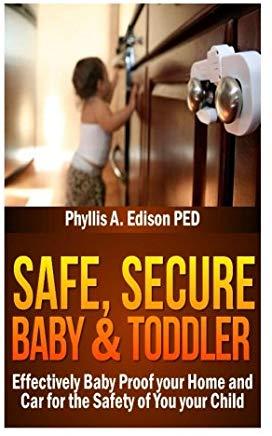
Edison Ped, Phyllis a.
product information
description
3Safe, Secure Baby & Toddler: Effectively Baby Proof your Home and Car for the Safety of You & your Child Why is It Important for My Baby to Have a Baby-Proof Home? Parents often feel overprotective especially when it comes to their children. Because of their protective instincts, they often feel scared especially when they are away from the house. They often cannot shake the feeling that their children might be in one form of danger or another while they are away. For parents, the well-being of their children is a 24-hour concern. No matter how much tasks they have to do, they think about their children and their safety. This is not unfounded. Experts believe that kids over the age of 1 and 4 are more likely to be injured because of being overly curious. This heightened curiosity often results in accidental injuries brought about by touching and playing with things they are not supposed to touch or going to places where they are not supposed to. Each year, over 2.3 million children are injured accidentally and a thousand more are killed due to lack of protection. Such statistics can be found in the U.S Center of Disease Control or CDC. Unsupervised children inside or outside the house are not safe. The only way to decrease the possibility of accidents from happening is for moms to baby-proof their homes. Baby-proofing involves several stages that coincide with your baby's age and developmental stage. According to Jean Piaget, a famous Swiss developmental psychologist and psychoanalysts, the first stages of the infant from birth and to 1 year is the child's coordination stages. During birth to 6 weeks, coordination and sensation are developed by the infant. The child learns several primary reflexes, such as sucking, following movements of items, and clenching the hands. During the 4th and 8th months, the infant already becomes object-oriented and he follows repeated actions. The infant follows the actions of everyone inside the house and his secondary circular reactions are developed. At this stage, parents should spend time with their babies and observe whether they are developing as expected. The reflexes and actions that they learn will actually help them deal with some of the risks they encounter in their young lives. This will also be a good time for the parents to observe and take note of any special areas of safety concern that they need to address both at present and a few weeks or months down the road.
member goods
No member items were found under this heading.
Return Policy
All sales are final
Shipping
No special shipping considerations available.
Shipping fees determined at checkout.







